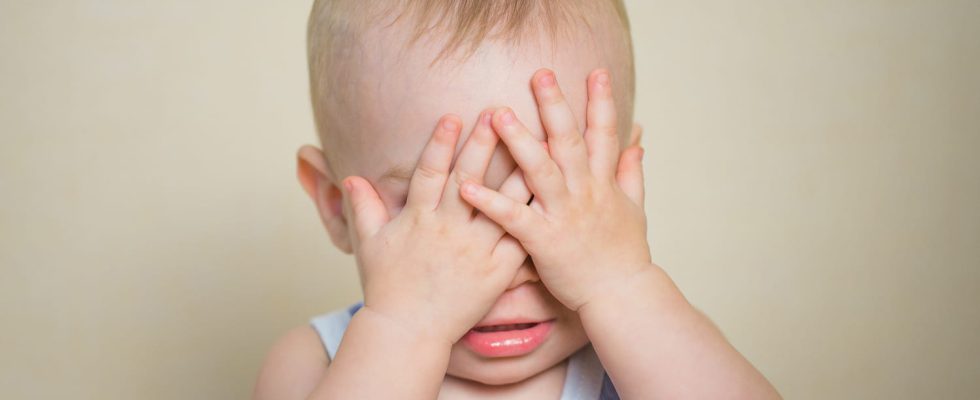Many parents worry when they see their child banging their head with their hands or against the floor or wall. As violent as it may seem, this gesture called “Kroumania” is quite common and allows him to express his frustration, explains doctor Sandra Brancato, pediatrician.
Does your child bang his head on purpose? With your hands, against the wall or against the floor? Although this behavior can be worrying, it is quite common in babies who lack the means of communication to explain their opposition to the decisions of adults. Dr. Sandra Brancato, pediatrician and member of the AFPA (French Association of Ambulatory Pediatrics) explains the reasons for this behavior.
Why is my baby banging his head with his hands?
Banging your head is called krouomania and often occurs in children aged 6 and 12 months with a peak between 18 and 24 months. If some children keep this bad habit longer, the majority of them stop doing it before the age of 3 years. “A lot of times, young infants behave like this out of frustration and because they have trouble managing their emotions. It almost never correlates to a medical problem. Parents often think they’re in pain somewhere, but when everything is fine, that their child is eating well, sleeping well, playing and developing normally, there is no need to worry “, says Dr. Brancato.
“Often infants engage in this behavior out of frustration and because they have difficulty managing their emotions.”
Why is baby banging his head against the wall?
He does it for the same reasons he hits his head with his hands. “Often, he expresses his anger, his opposition, his frustration in front of an adult who told him NO! or took an object from him“, says Dr. Brancato.
Why is baby banging his head on the floor?
There again, he does it to evacuate an overflow of emotion, because he can’t stand his parents telling him “no”, can’t accept not having an object or because he can’t manage to do what he wants. Frustration is intolerable to him because he has not yet learned to accept it and internalize his disappointment.
What if baby hits his head?
Do not panic if your child is concerned: all babies go through phases marked by great frustration that manifests in opposition and anger. “It’s normal, it’s not serious and it will pass. Just stay calm, benevolent and firm: sometimes No is no!“explains Dr. Brancato who adds that the child is able to understand many things and that it is only necessary to use the right words.”You can tell him: “No, I won’t let you put your fingers in the socket, you protest, but that’s the way it is and banging your head won’t change anything! Protest if you want to, but I’m standing firm and I tell you NO“, she advises.
“It’s normal, it’s not serious and it will pass. You just have to remain calm, benevolent and firm: sometimes No is no!”
Is it worrying and when to consult?
If krouomania is, most often, not worrying, you should not hesitate to seek advice from your pediatrician or your general practitioner in two cases. “Parents should consult when there are developmental disorders or other disturbing behavioral signs, if the child eats badly, sleeps badly, of course if he has acute symptoms such as fever or vomiting“, explains Dr. Brancato who also recommends a consultation when parents are overwhelmed by the situation, invaded by unmanageable anger on a daily basis, when they feel the need to be supported and when an educational aid can allow them to ask limits.
“Some children are more difficult and some parents need the help of a doctor or health care professional to help develop their skills in caring, but not permissive parenting.emphasizes Dr. Brancato.
Is krouomania a sign of autism?
No, krouomania is not a manifestation ofautism if it occurs in isolation. “Associated with other particularities, it can sometimes alert and require a consultation, or even a more in-depth assessment. However, a baby who beats his head when he is not happy is nothing to worry about, she concludes.
Thanks to Dr Sandra Brancato, pediatrician and member of the AFPA (French Association of Ambulatory Pediatrics)
